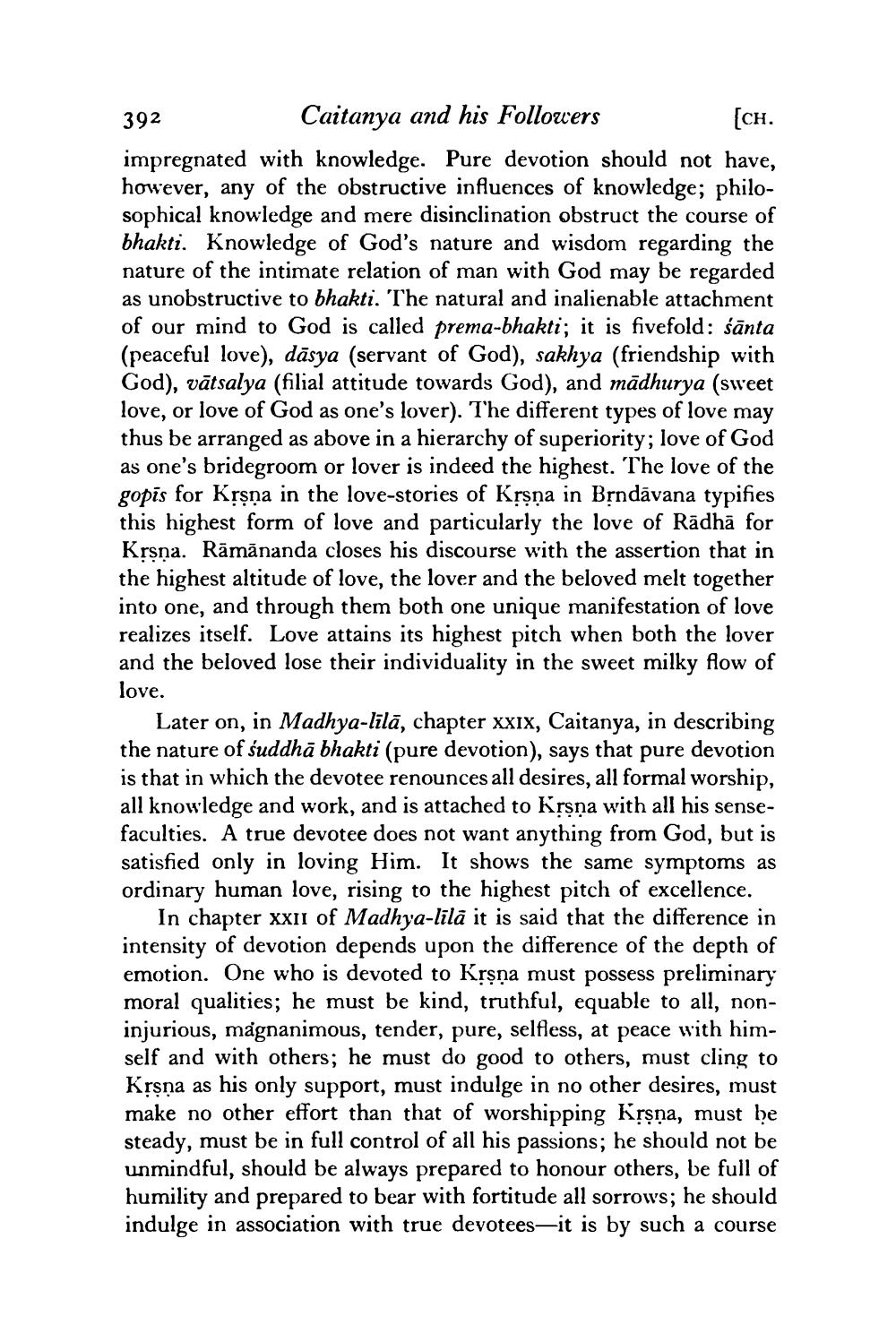________________
392 Caitanya and his Followers
[CH. impregnated with knowledge. Pure devotion should not have, however, any of the obstructive influences of knowledge; philosophical knowledge and mere disinclination obstruct the course of bhakti. Knowledge of God's nature and wisdom regarding the nature of the intimate relation of man with God may be regarded as unobstructive to bhakti. The natural and inalienable attachment of our mind to God is called prema-bhakti; it is fivefold: śānta (peaceful love), dāsya (servant of God), sakhya (friendship with God), vātsalya (filial attitude towards God), and mādhurya (sweet love, or love of God as one's lover). The different types of love may thus be arranged as above in a hierarchy of superiority; love of God as one's bridegroom or lover is indeed the highest. The love of the gopis for Krsna in the love-stories of Krsna in Brndāvana typifies this highest form of love and particularly the love of Rādhā for Krsna. Rāmānanda closes his discourse with the assertion that in the highest altitude of love, the lover and the beloved melt together into one, and through them both one unique manifestation of love realizes itself. Love attains its highest pitch when both the lover and the beloved lose their individuality in the sweet milky flow of love.
Later on, in Madhya-līlā, chapter xxix, Caitanya, in describing the nature of suddhā bhakti (pure devotion), says that pure devotion is that in which the devotee renounces all desires, all formal worship, all knowledge and work, and is attached to Krsna with all his sensefaculties. A true devotee does not want anything from God, but is satisfied only in loving Him. It shows the same symptoms as ordinary human love, rising to the highest pitch of excellence.
In chapter XXII of Madhya-līlā it is said that the difference in intensity of devotion depends upon the difference of the depth of emotion. One who is devoted to Krsna must possess preliminary moral qualities; he must be kind, truthful, equable to all, noninjurious, magnanimous, tender, pure, selfless, at peace with himself and with others; he must do good to others, must cling to Krsna as his only support, must indulge in no other desires, must make no other effort than that of worshipping Krsna, must be steady, must be in full control of all his passions; he should not be unmindful, should be always prepared to honour others, be full of humility and prepared to bear with fortitude all sorrows; he should indulge in association with true devotees-it is by such a course




